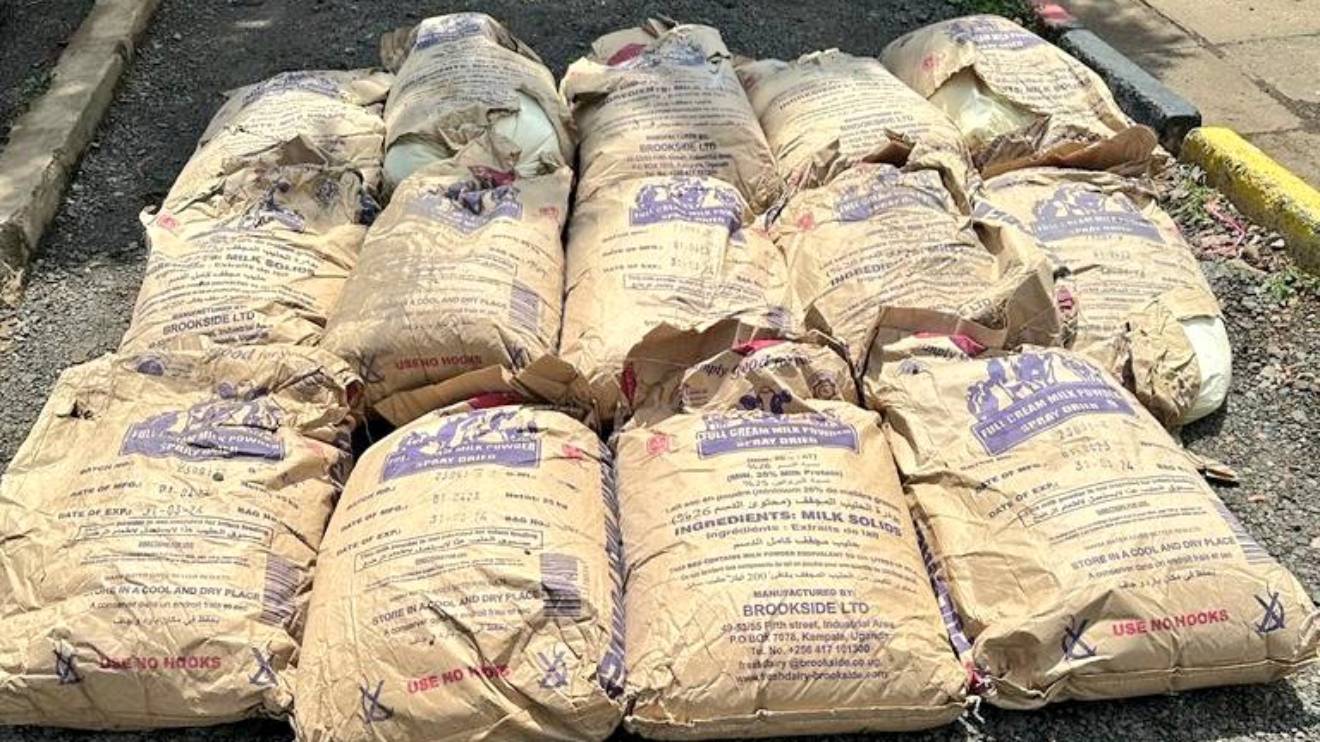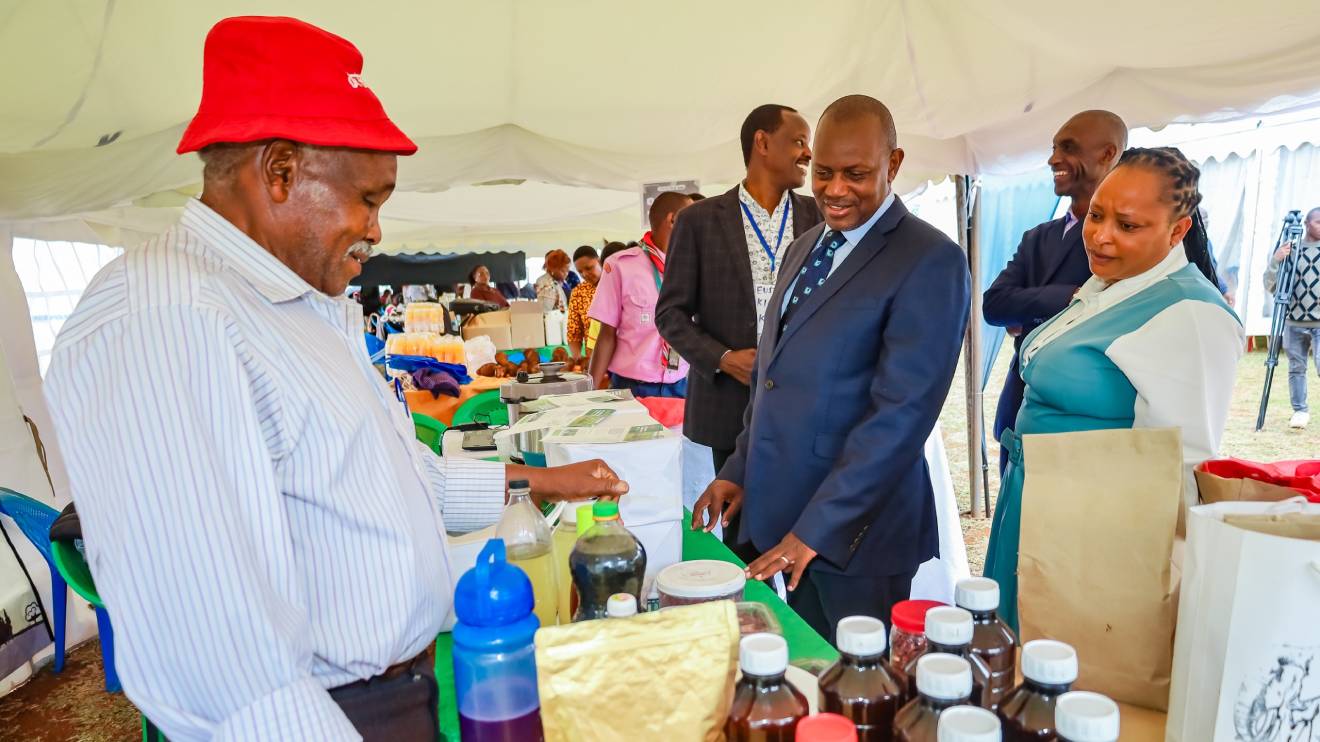Contraband dairy products worth Sh35.67 million have been intercepted by the Kenya Dairy Board (KDB), revealing a clandestine network engaging in the illicit trade.
The crackdown not only focused on the unauthorized importation of 655 25-kilogram bags of full cream spray dried milk powder but has also exposed alarming signs of potential adulteration with maize flour by unscrupulous traders.
The confiscated goods, originating from a wholesaler on Nairobi's Eastern Bypass in August last year, were notably lacking the necessary importation documents, indicating a blatant violation of regulatory procedures.
Furthermore, 150 25kg bags of full cream milk powder were seized at Kamakis from unregistered traders, with an additional 422 bags impounded from a different Kamakis location.
In a startling development, the Dairy Board uncovered a significant consignment of corn starch bags, powder mixing equipment, and packaging materials at the facility.
Read More
This discovery raises serious concerns about the safety and quality of the product, hinting at a deliberate adulteration to artificially boost sales volumes.
"This leads to further suspicions that the product is constituted by mixing with corn starch and repackaged as full cream milk powder. If proven true by the ongoing lab analysis, this constitutes serious adulteration, fraud and consumer deceit," stated the Board in an official statement.
The inspection also shed light on the unsanitary conditions of the mixing and packaging premise, lacking fundamental facilities, including water.
Such shocking findings highlight the potential risks associated with the production process.
The crackdown involved a collaborative effort from a multi-agency team, comprising the Kenya Revenue Authority (KRA), Kenya Bureau of Standards (Kebs), the Anti-Counterfeit Authority (ACA), and the Directorate of Criminal Investigations (DCI).
This collective approach underscores the gravity of the situation.
Agriculture Cabinet Secretary Mithika Linturi expressed deep concern over the persistence of illegal dairy product importation despite governmental efforts to streamline trade processes.
"Despite government efforts to facilitate international and local trade through harmonization and automation of business processes, we note with concern that illegal importation of dairy products continues to take place," commented Linturi.
The revelation of this illicit trade and potential adulteration sends shockwaves through the dairy industry, prompting authorities to reevaluate and strengthen regulatory measures to ensure the safety and integrity of dairy products in the market.










-1751118267.jpg)
